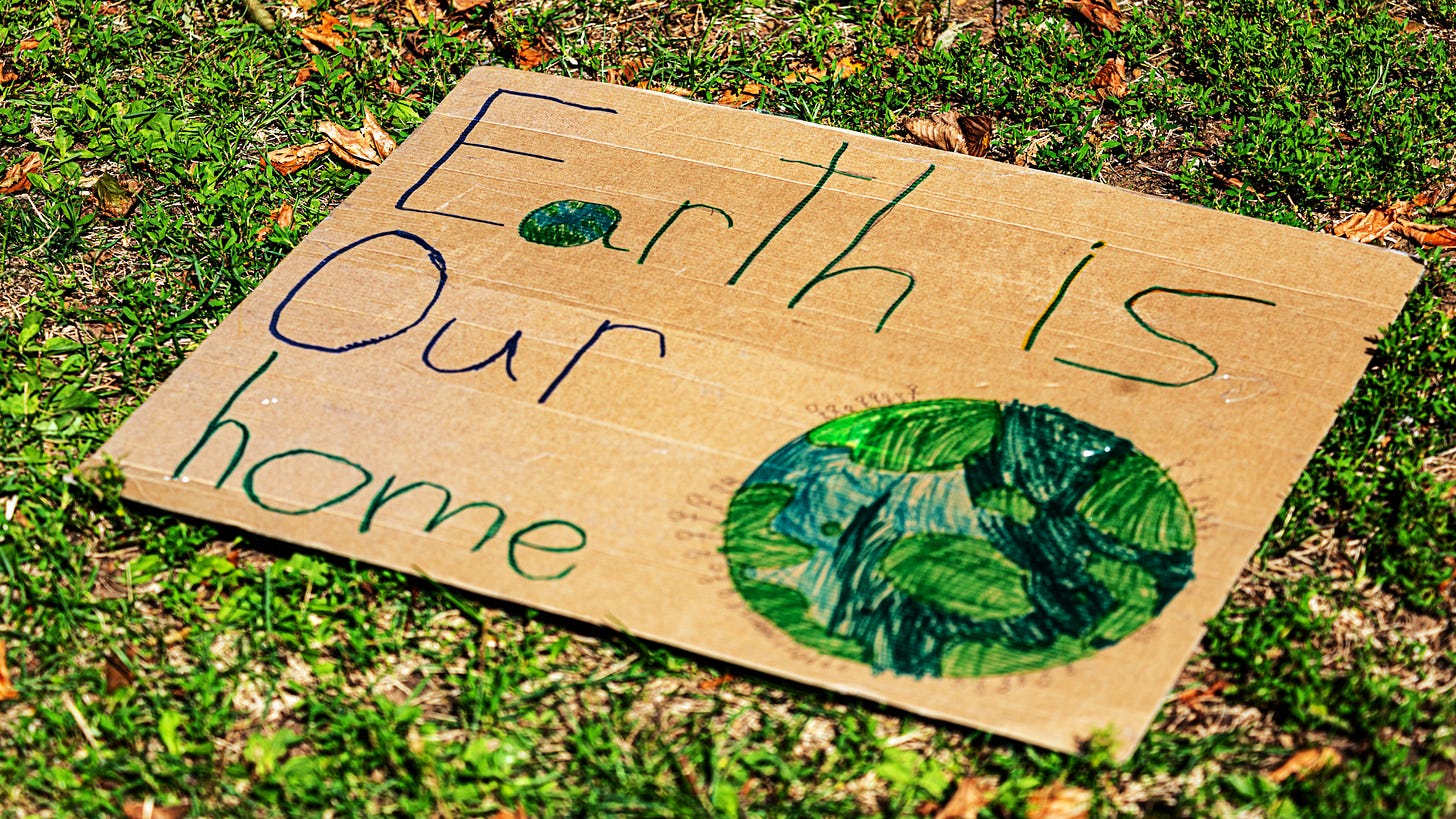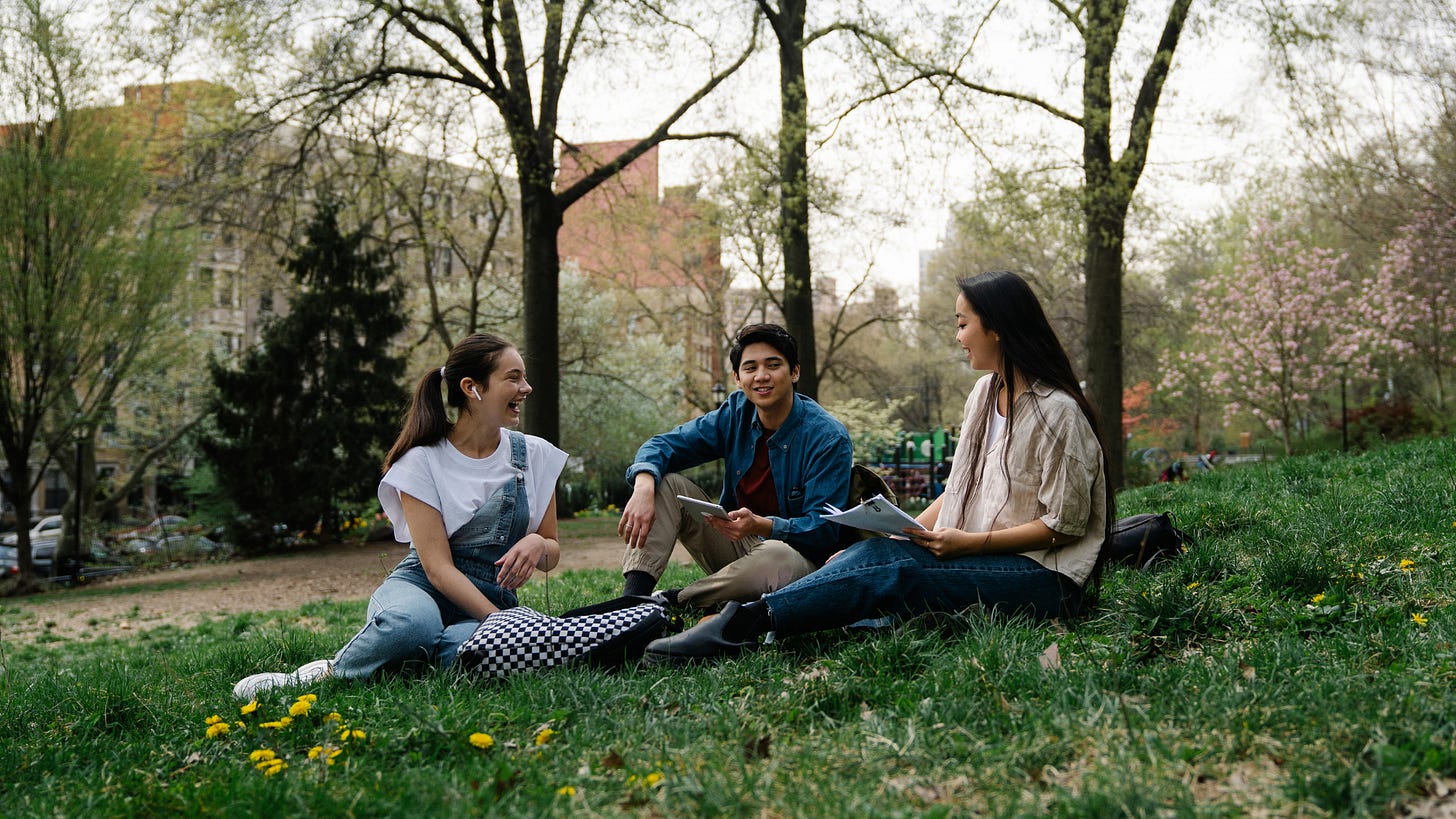Are we really doomed?
Is it too late to do anything about climate change?
These days, I’m often accused of being a “hopium peddler” – someone who promotes overly optimistic, even delusional solutions to the climate crisis, offering false comfort like some kind of emotional drug that helps us avoid facing hard truths.
It's a strange accusation to level at a climate scientist who’s spent the last twenty years warning about the very real risks climate change poses to every aspect of our lives. But it starts to make sense when you look at where it’s coming from: almost always someone in a high-income country who’s not struggling to feed or shelter their family, as so many already are thanks to climate-fueled extremes, but is so (rightly) alarmed by everything they've read and heard about climate change that they've (wrongly) concluded the best, or perhaps easiest, response is to give up. And while I can understand the temptation to do so, if we all followed that path, our doom would be all but guaranteed.
When I get these kinds of comments, I usually reply with a link to one of my favorite Global Weirding episodes, “Is it too late?”. But I made that video almost eight years ago. What’s changed since then? Has the clock finally run out?
That’s why I’ve made this special edition of Talking Climate—to take a fresh look at the rise of climate doomerism, explore what the science says today, and remind us all (myself included) why there’s still every reason to act.
Over the past few years, climate disasters have soared. At the same time, news of solutions remains scarce.^
Here’s the problem: our brains aren’t built for constant, long-term worry. So when an avalanche of bad news makes us feel helpless, as if there's nothing we can do, it’s often easier to simply tune out.
An even more dangerous coping mechanism is climate “doomerism.” But I want to be clear, doomerism is not the worry that we are doomed. That worry is very natural if we understand the scale of the problem we're confronting!
The doomerism I'm talking about is the absolute conviction that there’s nothing left that we can do, paired with the desire to spread this message like an Old Testament prophet. And when climate scientists like me insist that there is something we can do, this threatens the comfortable feeling provided by giving up, which in turn can make doomers turn hostile. I received my first attack of this nature over three years ago, and they've only increased as alarming headlines pile up.
It's absolutely true that we can no longer avoid all the impacts already unfolding. It’s also true that, although climate action is happening, it’s not at the scale needed to avoid dangerous impacts. And it’s true the challenges before us are serious: but they are not beyond our ability to solve.
We still have the power to change the future and avert the worst. Every bit of warming avoided matters, and every action—and every choice—counts. That’s a direct quote from an IPCC report: and it’s why I refuse to give up, and why I am committed to sharing encouraging climate news every week.
It's also why, from my perspective, there’s little difference between someone who rejects the reality of climate change and someone who tries to convince people we cannot fix it. They are equally bad, because the result of their message is the same!
^ Thankfully there are exceptions! In addition to this newsletter, a few of my other favourite sources of good climate news include the Outrage + Optimism podcast, Alaina Wood aka The Garbage Queen's Tiktok videos, Sam Bentley's Youtube channel, and Nick Hedley's The Progress Playbook newsletter, as well as the New York Times' 50 States, 50 Fixes series. But, sadly, these small spots of light are far outweighed by the deluge of bad news coming across our screens from all the other sources every day.
The science is clear: everything we do matters, now more than ever. So what we most need are people who, upon recognizing the seriousness of the climate crisis, are motivated to act—not give up. And the good news is, there’s a lot more of us than you would think!
People’s Climate Vote is the world’s largest survey on climate change. You can explore your country’s results here. But the most stunning findings in this year's survey, in my mind, are the global numbers:
80% want their country to do more on climate change
78% think their country should do more to protect people from extreme weather events
72% want their country to speed up the transition from fossil fuels to clean energy
69% said climate change was already affecting big life decisions, from where to live to what to buy
However, in most countries, a previous survey by the Yale Program on Climate Change Communication shows that the majority of people don’t talk about it—or hear anyone else talk about it—on a regular basis. As a result, all too often, we think we’re in the minority.
Why does this matter? Because our willingness to act is directly related to whether we think that action will make a difference. And whether we think our actions will make a difference depends on whether we think we're acting alone, or whether we realize that many other people feel the same!
As historian Emily Pawley shared with us just a few months ago, the world has changed before, when people loudly demanded it do so. The scales tipped relatively quickly on issues such as civil rights, smoking, and apartheid when people rallied together and declared it was time to change.
Our collective voice has always been the catalyst for action and today, the data is clear: the majority of voices already agree. We just have to start using them!
As I often say, we can’t tackle climate change alone—but I know we can do it together.
But here’s the thing—how do humans ever accomplish anything without talking about it first? Today, even though the majority of people in most countries support climate action, few are actually talking about it. And when we don’t hear others bring it up, we assume they don’t care—when in reality, they often feel the same way we do.
How can we fix this? The answer is so easy we often overlook it—by talking about it!
I don’t mean flooding people with terrifying news about massive wildfires, melting glaciers, or collapsing ocean currents. That kind of conversation often leaves people feeling even more helpless. I don't mean getting into the arcane scientific details of how CO2 absorbs heat or the challenges of modeling cloud microphysics, either. And I definitely don’t mean using our voices to shame others—for flying, for eating beef, or for falling short in some way. Shame rarely motivates change. In fact, it tends to do the opposite: it causes people to shut down, retreat, and stop sharing or acting at all.
Instead, talk about why you care about climate change. How is it affecting the people, places, or things you love? Share the small victories—yours and others’—and celebrate them. Use your voice to advocate for change where you live, work, study, or worship.
I think of this as engaging the head, the heart and the hands: What’s happening? Why does it matter? And what can we do about it?
Not sure where to start? Don’t worry—this newsletter has you covered. Every week I share good news about climate solutions, not-so-good news about how climate change is already affecting what we love, and practical, actionable ways to make a difference.
The data is clear that the vast majority of people want climate action. That includes the more than 160,000 people in over 160 countries around the world who read this newsletter each week.
You are not alone. We are all in this together!
Sun June 22 at 6pm MT - "Saving Us: Book Discussion" with Calgary Climate Hub, The Wisdom Centre and the Calgary Interfaith Council, in person at 800 3 St SE Calgary, Alberta - $15









I recently read that a group of Indigenous Adivasis women from rural India are creating dream maps, visions showing ideal states of their ancestral lands and villages. They plan to submit the dream maps to the government to request preservation and restoration funds.
I found this very inspiring. We can all do something. But it's always more comfortable to do nothing.
Thank you so much for this reality check. It’s a short walk from denial to doomerism, and both stem from the same willful ignorance. ‘This climate crisis thing means I have to change or give up my comfort or go live in the woods’ (not true, but the woods are pretty wonderful). It’s rare these doomers bother to look at all the upsides — community connections; more reliable local energy sources; potential independence from high utility bills; etc. I won’t even get into how pathological it is to declare it’s all over / too late, when millions globally are living the effects of this man-made crisis, and suffering loss and displacement already.